Immaculata
Following copied in its entirety from original article [with edits] from:

Picture of Immaculate Conception [Poletown] Parish from the Archdiocese of Detroit Archives
Recently, it came to our attention that the design of the
Immaculate Mother was very unique. However, since the statues were a gift, the
parish didn’t have any documentation on its origins or sculptor. Thus began a very lengthy search for
information!
First, we found pictures of the original statue on the altar
of Immaculate Conception, both from the Library of Congress and the
Archdiocesan archives. In them, you can
see the two angels holding large candles on either side of the Mary
statue. However, neither source had
information on sculptor.
It took help from the Polish Art Center in Hamtramck and
Robert Strybel to identify the statues’ creator. Joanna Torchala, curator of the Kwawery
Dunikowski Museum of Sculpture identified the statue.
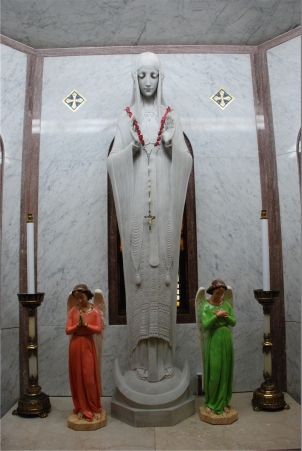
Immaculata in St. Hyacinth
The Mary statue is called “Immaculata” (the Immaculate). It
was created by Paul Maximilen Landowski (1875-1961). [Biography] The statue is dated around 1930. A reduced form (usually around 18”) is sold
in bronze at art auctions.
The name Landowski probably doesn’t ring a bell, but you
certainly are familiar with his work.
His most famous work is the Christ the Redeemer statue in Rio de
Janeiro, Brazil. He also contributed to
the Reformation Wall in Geneva, Switzerland.
Born in 1826, Landowski grew up in Paris, France. He began gaining notoriety as sculptor in
1900 when he won a major competition with a statue of King David from the Old
Testament. It’s unclear how he became to
be the sculptor of Immaculate Conception’s altar statues, but the date of the
Immaculata coincides with the creation of the Christ the Redeemer statue.
In 1981, Fr. Skalski received three statues from Immaculate
Conception before it was demolished to make room for the GM Hamtramck plant. This was a very controversial closure, as was
the entire land acquisition for the Poletown Plant. Many people people were
unwillingly displaced as the City of Detroit and GM selected the site, much of
which contained a very viable neighborhood, churches, businesses and even a
hospital.
There was a dedicated group of parishioners that took up residence in the church to try and prevent it from being demolished. They were finally evicted by the police. The statue was brought to Saint Hyacinth Parish for safekeeping by Father Joe Karasiewicz, the pastor of Immaculate Conception. Father Skalski, then pastor of Saint Hyacinth had one of the confesionnals converted into a side altar to display the statue of Mary.
Enjoy these pictures of the Mary statue that we’ve
collected!
The Marian Shrine at St. Hyacinth
Immaculate Conception Parish courtesy of Hoffman Studies and the Archdiocese Archives
Immaculate Conception Parish courtesy of Hoffman Studies and the Archdiocese Archives
Immaculate Conception Parish courtesy of the Archdiocese Archives
Following copied in its entirety from: https://sainthyacinth.wordpress.com/2015/10/03/the-imaculata-the-search-for-answers/
Other Poletown pictures at http://www.loc.gov/item/mi0157/
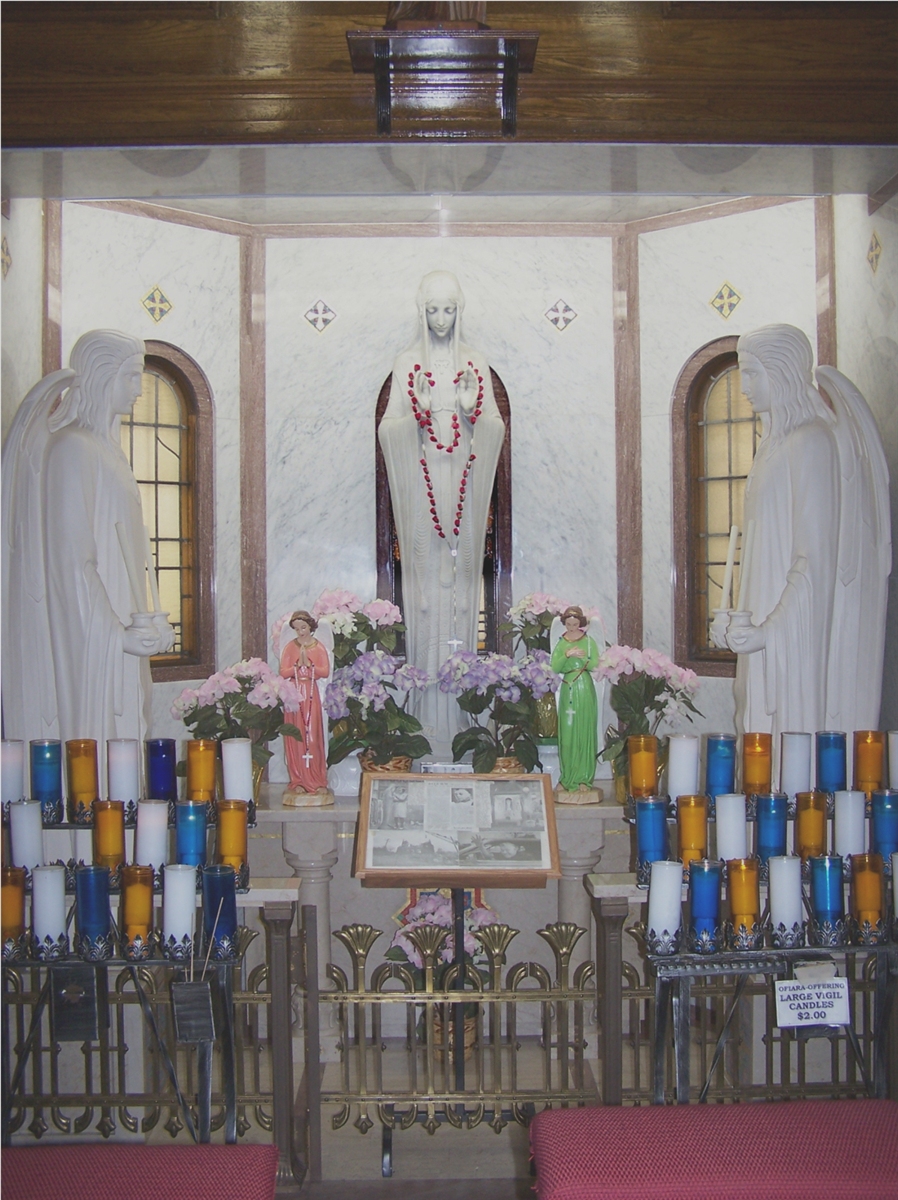

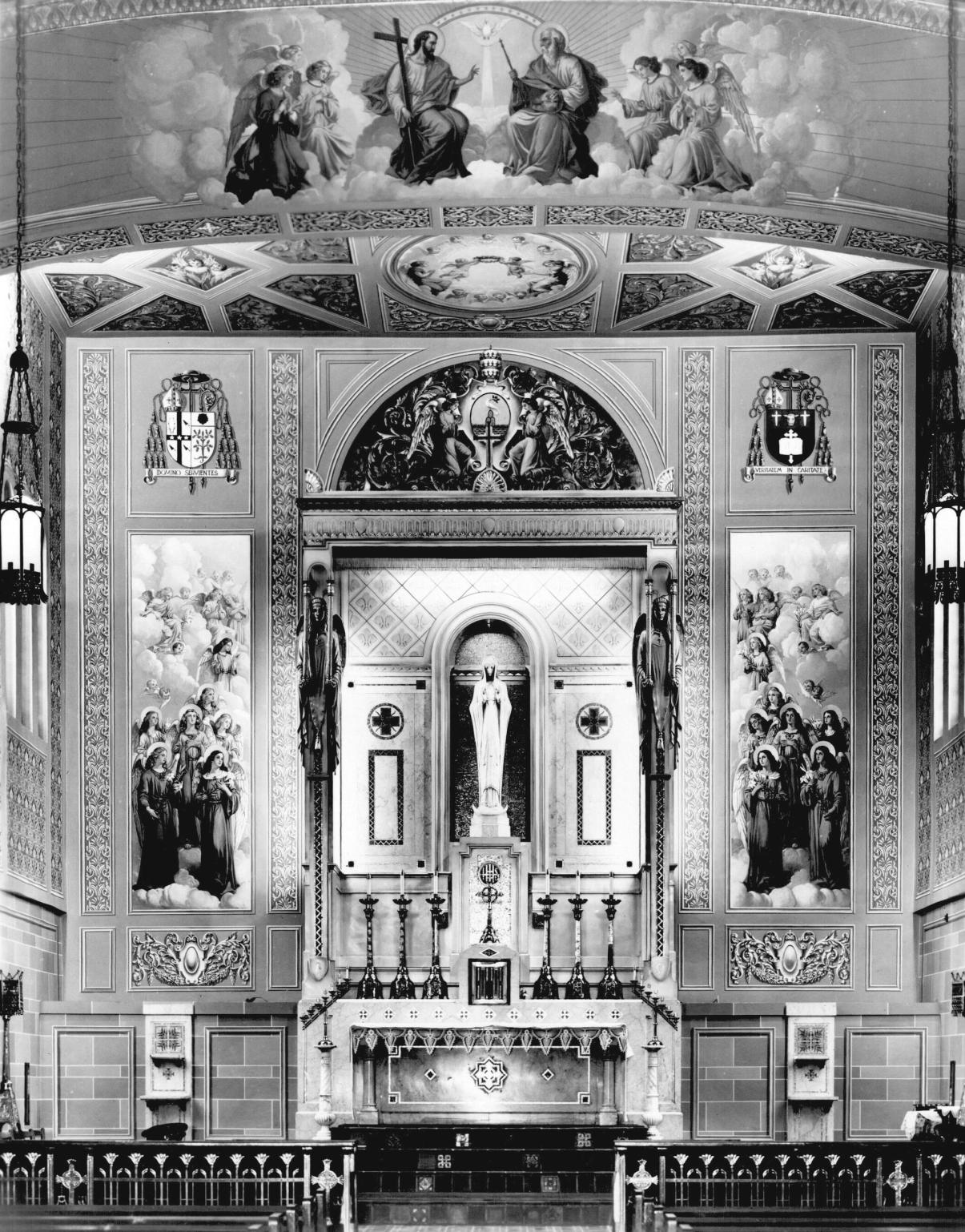
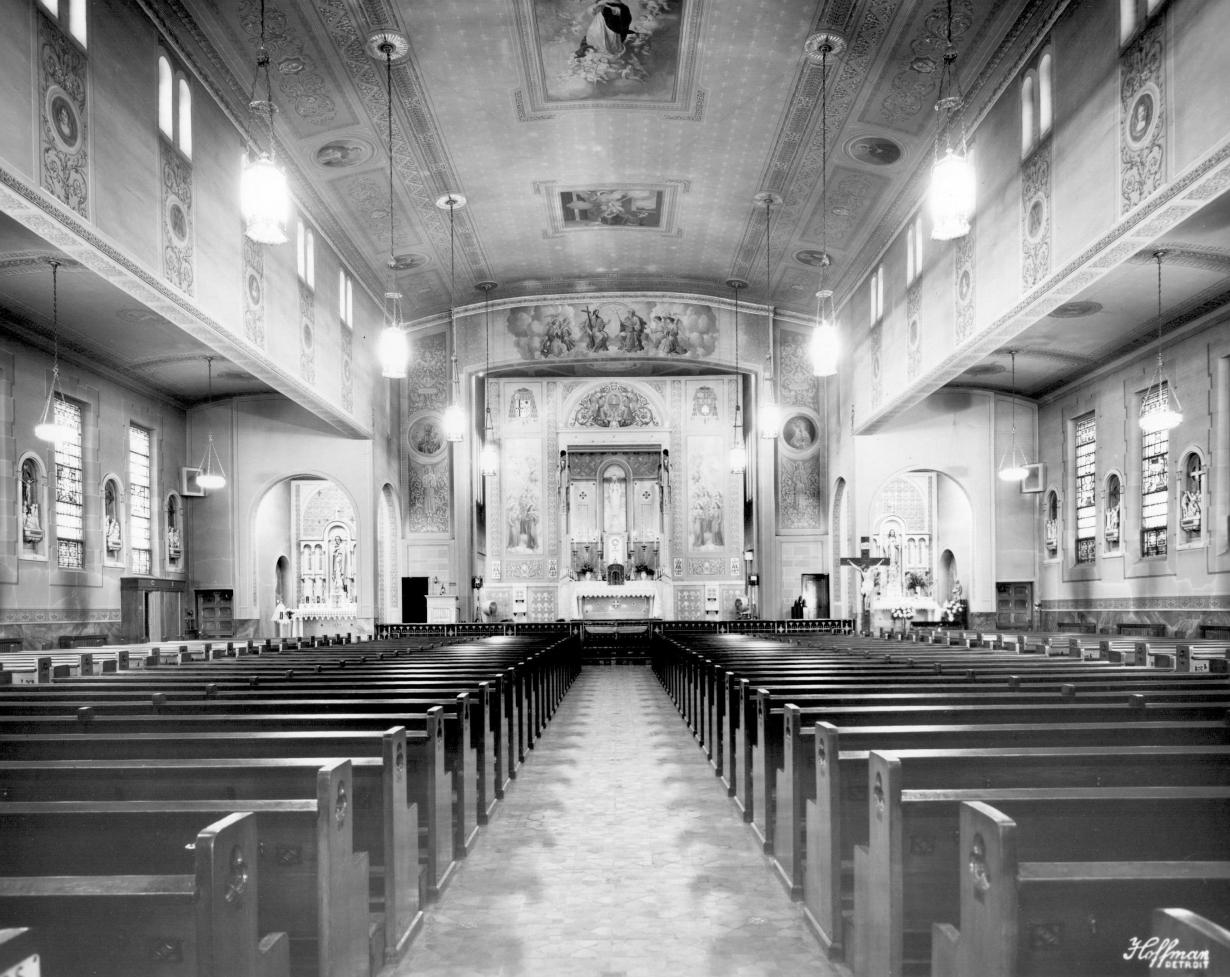
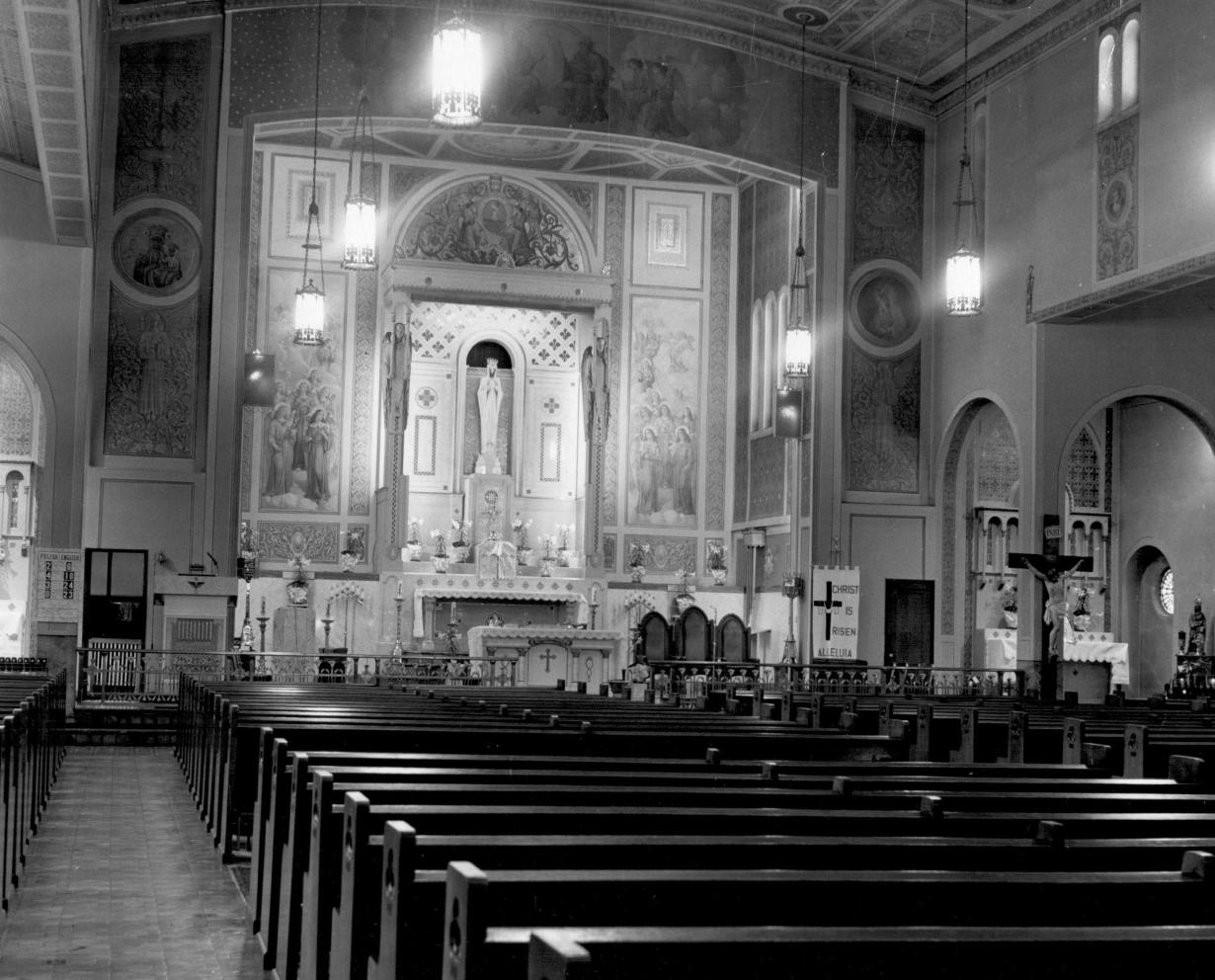



No comments:
Post a Comment